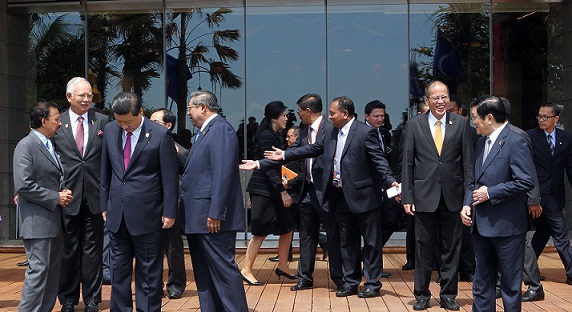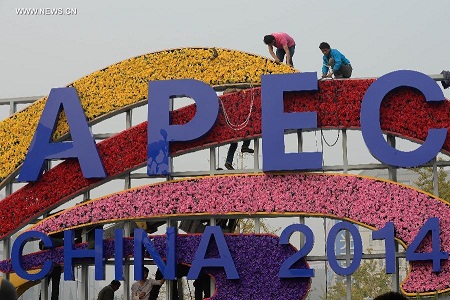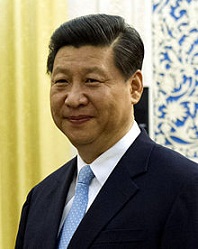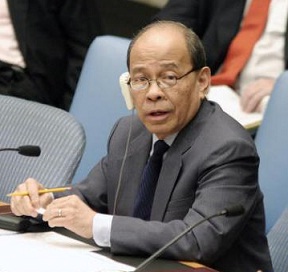But DFA officials are working on a pull- aside talk between the two leaders on the sidelines of the summit of 21-member organization.
In the forum Wednesday hosted by the Foreign Correspondents Association of the Philippines, Aquino said: “The Chinese side does not ask for a bilateral talk; the Philippine side does not also ask for it. Both of us, I guess—and I am hopeful—are looking for a solution that can be win-win.”
Foreign Affairs sources said they tried to play it by ear and decided against requesting for a bilateral meeting recalling what happened in the November 2012 APEC summit in Vladivostok, Russia when Foreign Secretary Albert del Rosario announced that Aquino and then President Hu Jintao would meet to discuss the South China Sea conflict particularly the tension in Scarborough Shoal, scene of a 57-day standoff between Philippines and Chinese vessels a few months earlier.
Hu never found time to meet with Aquino in Vladivostok.
Xi, who assumed China presidency on March 14, 2013, has never agreed to meet with Aquino.

2013 APEC in Indonesia. Chinese Leader Xi Jinping and President Aquino in separate huddle with other leaders during a break.Will they finally sit down together and talk?
Last September, Aquino announced that he was going to Nanning, capital of Guangxi Zhuang Autonomous Region to attend the 10th ASEAN-China Expo (CAEXPO), where the Philippines was the country of honor.
Aquino had to forgo the visit when China advised the DFA for the President “to come to China at a more conducive time.”
By that that time, the Philippines had filed a complaint before the United Nations Arbitral Tribunal against China, the first country to have brought the economic superpower before the international court. The Philippines asked the UN court to declare as illegal China’s nine-dashed line map that encroach on the exclusive economic zone of several Southeast Asian countries including the Philippines.
Even at the ministerial level, China has snubbed the Philippines. In the last Asean Regional Forum in Myanmar, Chinese Foreign Minister Wang Yi met with also all his counterparts including Japan, with whom China has a serious territorial conflict, but not Del Rosario.
Diplomatic sources said there is no confirmation yet on the pull aside meeting (which usually takes about 10 to 15 minutes) between Aquino and Xi.
Sources said if the pull aside meeting would push through Aquino will personally invite Xi to next year’s APEC summit in Manila and suggest re-establishment of bilateral connections.
Philippine-China relations is strained not only by the filing of the case before the UN Court but also by Del Rosario’s “shame China” strategy. At the height of the Scarborough Shoal standoff, Del Rosario accused China’s Ambassador Ma Keqing of “duplicity.” Communications between DFA and the Chinese Embassy practically stopped with the DFA going through U.S. State Department to relay its message to Beijing and China sought the help of a backchannel, Sen. Antonio Trillanes III, to relay its message to Aquino.
In the FOCAP forum, Aquino was asked if he is thinking of a hotline with China just like what China and Vietnam (which also has territorial dispute with China in the South China Sea) have.
Aquino’s reply: “So, will a hotline help? The diplomatic side of me says: ‘Let’s explore that. Why not do that, in the sense that we do have that with the other ASEAN countries, and it really has redounded to quick action on potential incidents between our neighbors and ourselves.’ Now, we’d want to do that also with China to prevent any misunderstanding and miscalculations. ..”
To ease tensions with China, the Aquino administration did what diplomats term as “confidence-building measures.”
Last month, Aquino ordered a stop to all constructions, including a repair of the airstrip in Pag-asa islands, in features controlled by the Philippines in Spratlys. Defense Secretary Voltaire Gazmin said the Philippines “wanted to maintain the moral high ground in terms of the territorial dispute” as it called for a moratorium on all constructions in the disputed islands in South China Sea.
A second media trip to Ayungin Shoal, where the rotting BRP Sierra Madre serves as Philippine Navy outpost, has been postponed indefinitely.
Both Aquino and Del Rosario have also toned down their anti-China rhetorics.


